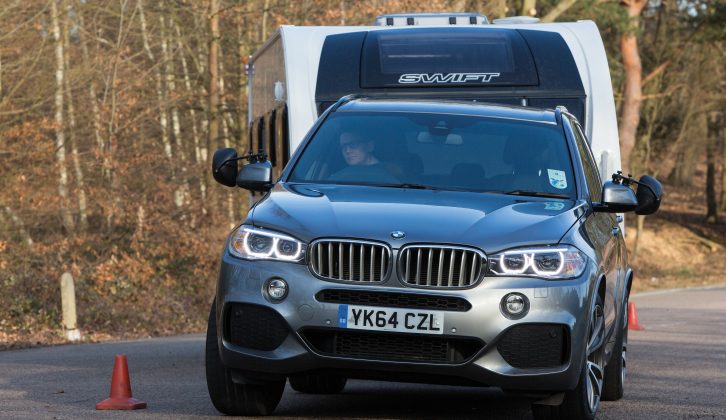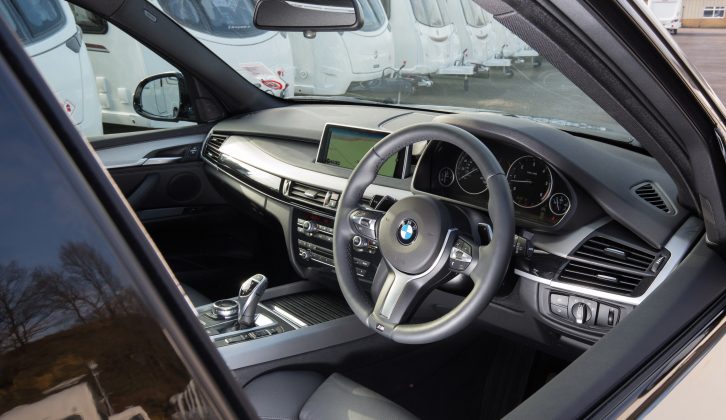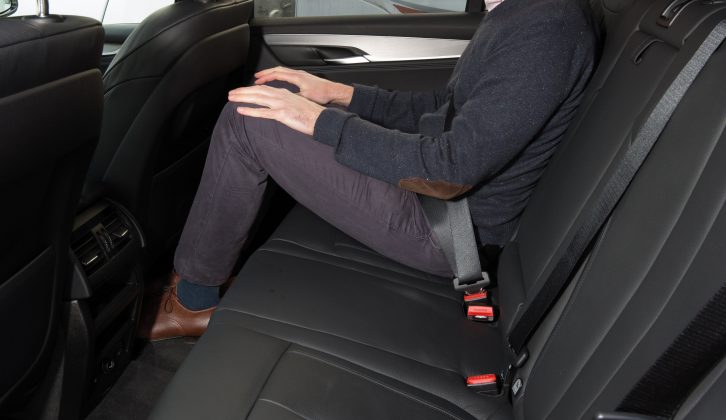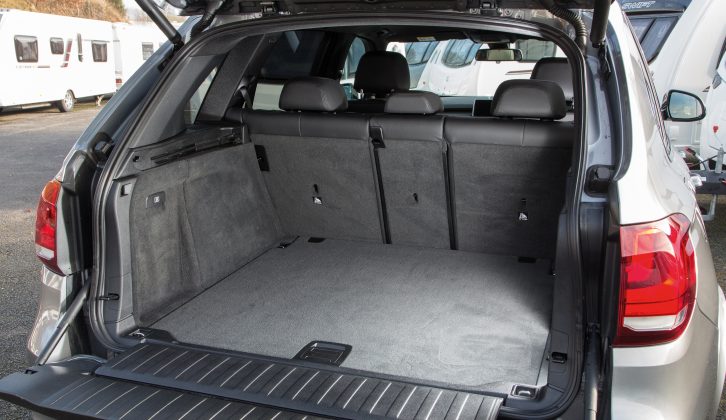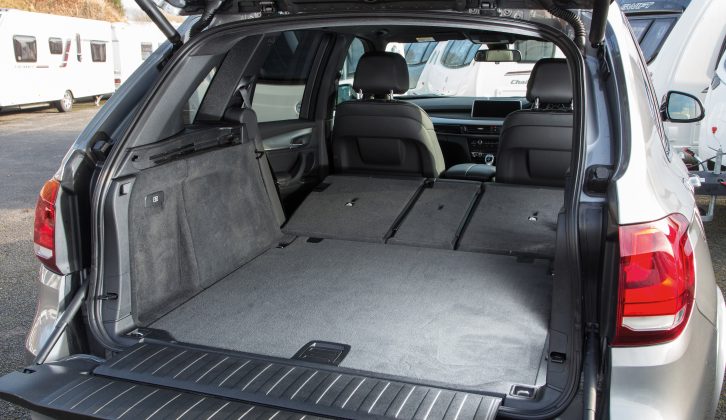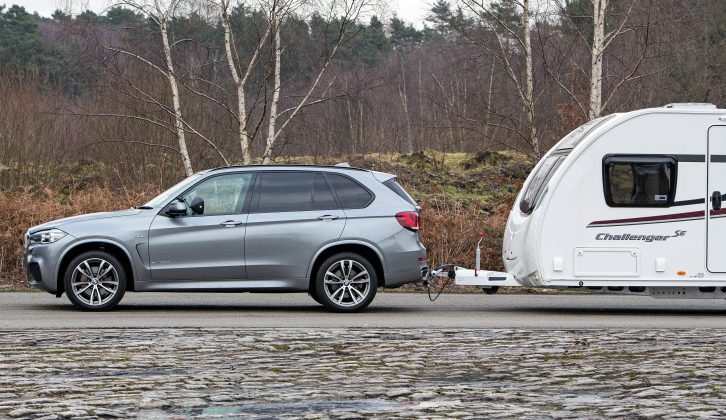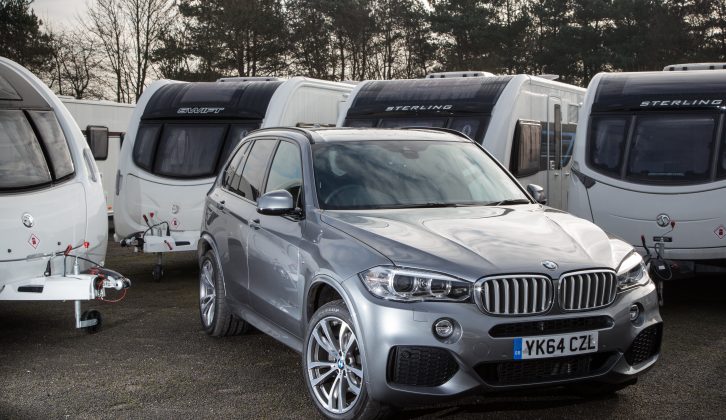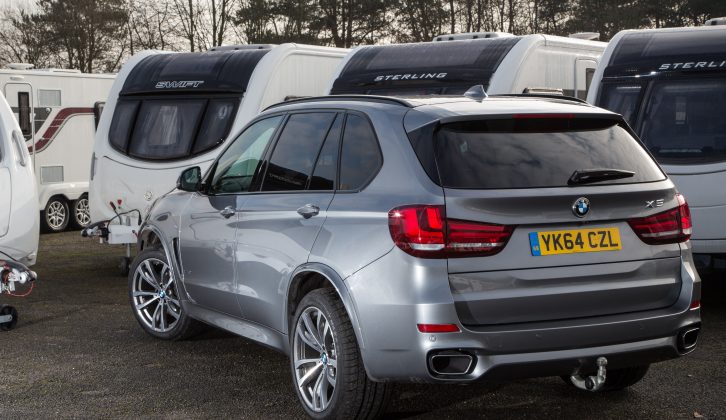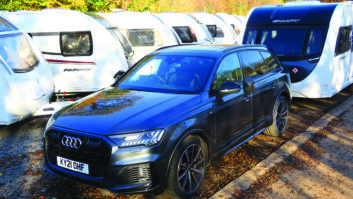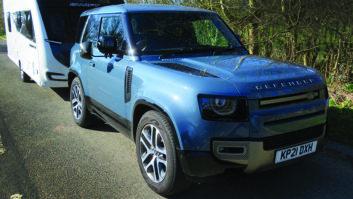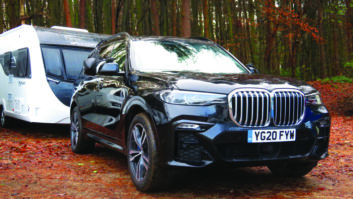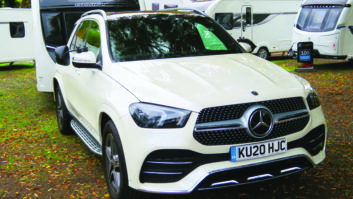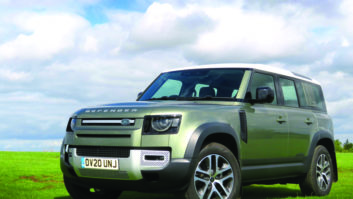Verdict
It’s hard not to be impressed by the BMW X5. As a tow car it performs brilliantly, with superb performance and stability.
We’d take the Land Rover Discovery over the X5 for its more refined engine and exceptionally practical cabin, but the BMW is tough competition for any big 4×4.
Pros
A strong, stable performer, whether towing or not
Cabin space is excellent, even for very tall drivers and passengers
Cons
The boot floor is rather high
When pushed, the engine is noisy
The latest generation of BMW’s X5 promises strong performance and heavyweight towing ability. Here we’re testing the xDrive 40d M Sport; with 465lb ft of torque from its six-cylinder diesel engine, it should have no trouble pulling any sensibly matched caravan. But we really want to push it to discover what tow car ability it has.
We want to see if the X5 is stable and secure at speed, as well as powerful. Also, is today’s X5 practical enough to rival the Land Rover Discovery as a family 4×4? Read the Practical Caravan review to find out.
Few cars that we’ve tested accelerate harder with a caravan in tow than the BMW X5
Towing
The BMW X5’s spec sheet suggests that there’s little it can’t tow. The sky-high 3500kg towing limit is far more than most caravanners would ever consider hauling, and the 2185kg kerbweight gives an 85% match figure of 1857kg.
Pulling all that weight is a 3.0-litre, six-cylinder diesel engine with 309bhp and 465lb ft of torque. Those figures are more or less double what a common-or-garden 2.0-litre diesel can muster. Few cars that we’ve tested accelerate harder with a caravan in tow than the X5.
We matched the BMW to a 2015 Swift Challenger SE 645 with a Mass in Running Order of 1526kg. The X5 pulled this twin-axle tourer from 30-60mph in just 6.8 seconds. It’s the kind of acceleration that means you can make the most of any opportunity to overtake, and there’s muscle to spare when towing up steep hills.
While it’s the X5’s acceleration that grabs your attention, it’s backed up by impressive stability. There’s almost no movement to correct at 60mph, which makes the driver’s life easy.
In an emergency manoeuvre the X5 continues to impress, despite steering that feels rather artificial and remote. There’s some body roll when changing direction in a hurry, but the tightly controlled suspension keeps everything well tied down, and the X5 has no trouble pulling the caravan straight again, even if the latter begins to slide.
Big 4x4s such as the BMW usually shine in hill-start tests, and the X5 is no exception. The electronic parking brake holds the car and caravan still at the touch of a button, and then releases smoothly. It takes very little throttle to pull the outfit up a 1-in-10 slope.
Everyday Driving
Without the weight of a caravan behind, the X5’s performance is even more vivid. BMW claims a 0-62mph time of just 5.9 seconds.
Use all of that performance, though, and the diesel engine becomes intrusively noisy. The deep, rumbling note isn’t unpleasant, but if you’d rather gather speed quickly and quietly then a Range Rover Sport SDV6 is a better bet.
Otherwise, the X5 is a very capable solo drive. M Sport cars, like this X5 xDrive 40d M Sport, come with Adaptive M Suspension, which allows drivers a choice of different modes. ‘Sport’ suits the car’s performance and firms up the suspension nicely.
We found ‘Comfort’ to be the better setting for daily driving, though. The X5 does a fine job of smoothing bumps in this mode, although it’s still not as plush as a Land Rover Discovery.
Space
The BMW X5 is roomy enough to make a practical family car. There’s more than enough space up front for tall drivers to get comfortable, and a good range of adjustment for the seat and wheel. Those in the back have reasonable head- and legroom, too.
Many big 4x4s have seven seats rather than five; BMW gives buyers the option of upgrading from five seats to seven for £990.
Without the optional third row (not fitted to our test car), the boot has a generous 650-litre capacity. However, the high floor means that you need to lift items a long way up to load them.
The rear seats fold down if more space is required, although this leaves a slight slope to the floor. Total boot capacity with the rear seats down is 1870 litres.
Running Costs
The BMW X5’s £55,610 price tag is high, but not excessive when compared with that of the competition. If the initial outlay isn’t off-putting, the car should be worth 50% of the original price after three years and 36,000 miles on the road, according to our colleagues at What Car?.
Running costs should be low if you can get anywhere near the official combined economy figure of 47.1mpg. On our towing economy route the car achieved 22mpg, more or less in line with what we’d expect of a big 4×4 towing a twin-axle caravan.
Technical Specifications
| Engine Size | 2993 cc |
| Kerbweight | 2185 kg |
| 85% KW | 1857 kg |
| Towball Limit | 140 kg |
| Maximum Towing Limit | 3500 kg |
| Power | 309 bhp |
| Torque | 465 lb ft |
| Offical MPG | 47.1 mpg |
| CO₂ | 159 g/km |
